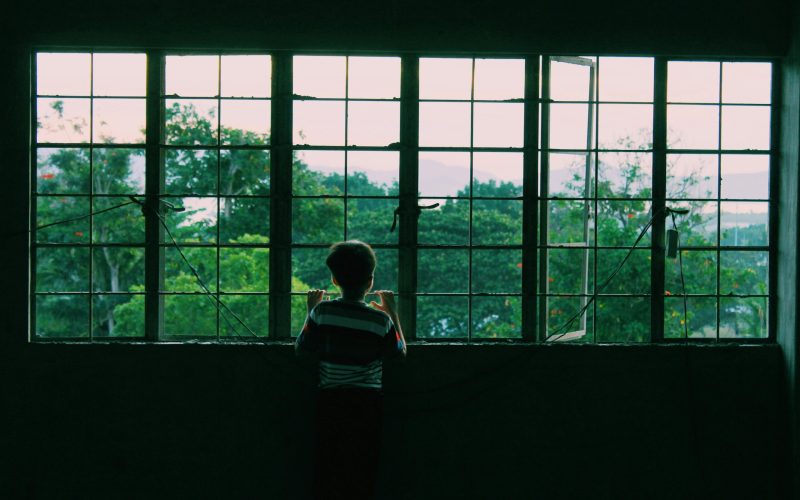By Deandra Arena and Ryan T. McGuire
Making good decisions for your children is tough under normal circumstances. Parents are always trying to protect their children from getting hurt while helping them become well-adjusted adults. During a divorce, this becomes even more difficult because your parenting decisions are under a microscope. For example, at what age and under what circumstances a child can be left home alone is a common issue that can affect family court proceedings.
Mary Jo Pitzl’s article, “At what age can a child stay home alone in Arizona? What to know as summer break hits” [1] provides solid guidance for normal family life, but family court battles add layers of complexity and intense scrutiny for the parents involved. Often, minor parenting choices can impact parenting schedules, affect how judges view the case, and create expensive legal complications.
The guidance in this article covers common questions about when children can stay home alone during custody cases.
Arizona Law and the Department of Child Safety
Under Arizona law, there is no clear rule about at what age children can stay home alone. Additionally, the Arizona Department of Child Safety (“DCS”), which is the agency charged with investigating abuse and neglect, also has not issued official guidance. Without clear laws or parameters to follow, parents are left to make tough judgment calls by themselves about whether they believe their children are capable of being home by themselves. This decision can lead to complications in family court proceedings, including possibly opening up a DCS investigation for neglect.
Under Title 8 of the Arizona Revised Statutes, neglect is defined broadly as a parent’s inability or unwillingness to provide adequate supervision, placing a child’s physical, mental, or emotional health and welfare at risk of harm. [2] This definition gives social workers and courts wide discretion in deciding what counts as adequate supervision and parents cannot predict on what basis their decisions will be judged.
This absence of clear guidelines complicates family disputes. Each side can characterize normal parenting decisions as poor judgment. Appropriate independence in intact families becomes “inadequate supervision” in adversarial proceedings. For example, a family may have allowed their ten-year-old to stay home alone while they were married but are now claiming the other parent is being neglectful by continuing this practice.
Can I leave my child at home alone?
Most parents want clear rules like “children over ten can stay home alone for four hours.” But that’s not how the law works because that’s not how reality works. A responsible twelve-year-old might do fine alone for two hours after school, but a seventeen-year-old with developmental delays might not be safe alone all day. This is further complicated by the fact that age alone does not address all facets of concern. The focus should be on the individual child and situation rather than on simple age limits.
Parents should consider several factors when making these decisions including the child’s maturity level, their ability to recognize situations that require help and how to ask for it, as well as the specifics of the situation—such as how long the child will be alone and what resources are available to them.
Using these considerations is better practice, as family court judges will consider whether a parent has made reasonable choices based on their child’s individual abilities and the circumstances.
Can I leave my children home alone?
Having multiple children at home can complicate the assessment of whether there is a lack of adequate supervision. While older siblings may help watch younger ones, sibling conflicts or bullying can create risks that parents need to take into consideration. Factors such as the children’s ages, behavior, and how well they get along are important in determining if they can be left alone together.
Foster children, adopted children, and children from different relationships present particularly sensitive circumstances that may require heightened attention. Our firm has encountered cases where older foster siblings have committed offenses against younger siblings, underscoring the need for careful supervision and assessment.
Parents should think carefully about each child’s needs and how well they handle responsibility. Differences in age and personality matter. Showing examples of times when things went well can help prove good judgment.
Can I leave my child with a babysitter or family member?
Finding good childcare requires careful planning, especially during familial disputes. Both professional babysitters and family members need proper evaluation and clear instructions from the parents in order to ensure they are best equipped to provide supervision.
For professional babysitters, check their background and experience level thoroughly. Get references and contact them. Remember that there could be a situation where the babysitter may need to testify in court about their qualifications and what happened while they watched your children.
Additionally, parents should not assume that family members are good choices just because you trust them emotionally and have a familial connection. There are many examples in the news of cases where relatives, including grandparents and siblings, have abused or neglected the children they were trusted to supervise. It is important to evaluate family members objectively based on their actual qualifications and reliability.
Give all caregivers detailed information about your children’s needs, emergency procedures, and behavioral expectations. Leave clear contact information and check-in procedures. Keep written records of these instructions and any important communications with caregivers to have on hand as documentation in case anything goes awry. It can also be handy to document your caregiver’s qualifications and your selection process (e.g., keep their resumes and references in a safe location). This shows you made thoughtful, responsible choices rather than just picking whoever was convenient.
Is there a risk in using unlicensed/unregulated day care?
Licensed day care facilities are usually good choices for parents in familial disputes, but parents should research the ratings and qualifications of both the facility and its caregivers. As a preliminary matter these facilities must follow state regulations for staff qualifications, safety procedures, and record-keeping. Licensed day care provides professional supervision with trained staff who know how to handle emergencies and behavioral issues.
However, even licensed daycare centers can have problems. Do not just drop off your child and trust that all will be well. Many parents choose a daycare for convenience of the location or cost but never check in to see if it meets their child’s needs. Parents are still ultimately responsible for the child’s safety. Visit the center regularly, talk to the staff, and watch how your child reacts to going there.
Parents should generally avoid unlicensed home day cares. These arrangements can lack proper oversight, insurance, and documentation and the caregivers may lack qualifications or have a history of harming children. If something goes wrong, you could face liability issues and criticism in court for choosing inadequate supervision.
The extra costs associated with licensed day care are usually worth the legal and emotional protection it provides. Keep records of your research and selection process to show you made careful, informed decisions about your child’s care.
Can my child walk home from school alone?
For parents in family court proceedings, having children walk home from school alone is not recommended unless the child is accustomed to this routine and of appropriate age to understand safety risks. Walking home alone can be dangerous even for adults. It is important to consider and weigh the dangers of traffic, risk of interactions with strangers, and other potential emergencies without immediate adult assistance available.
Courts could also view a routine of letting a child walk home alone negatively and question the parent’s ability to make judgments in the best interests of the child. Such decisions could suggest insufficient attention to child safety and supervision. Even successful past experiences may not prevent negative judicial assessment. For example, a couple may have been fine with their nine-year-old son taking the bus and walking home. However, this could be used against a parent once the dissolution proceeding is in full swing. The opposing party might allege that continuing this practice shows the parent is incapable of proper decision-making.
Parents should also be wary of potential DCS investigations. Even unsubstantiated investigations increase litigation stress significantly and delay resolution in family court. Opposing counsel can exploit such investigations in court proceedings and initiate an investigation to “pause” the family court proceeding indefinitely.
Parents should consider arranging alternative transportation or supervision arrangements. These might include carpools, after-school programs, or designated adult supervision. The additional effort demonstrates commitment to child safety and responsible parenting.
Conclusion
Although Arizona law does not clearly define when children can stay home alone, parents should use their judgment and knowledge of their child’s maturity and home environment to make the best decision for their child. In family court proceedings, these types of decisions can be questioned by the other parent and create unnecessary litigation expenses. Courts can consider how safe the child is and what your choices say about how you care for your child. It is always wise to consult with a family law attorney before making important decisions that could affect your legal situation, but even experienced counsel cannot provide definitive answers to every scenario. Taking proactive measures ahead of time costs significantly less than dealing with legal issues later.
Sources:
[1] At what age can a kid stay home alone in Arizona? What to know
[3] Nate Trela, When can Arizona kids be left home alone? Holiday tips to know, Arizona Republic
[4] Alexis Cortez, “Parents arrested after two toddlers left alone in Arizona home,” Arizona’s Family
Authors:
Deandra Arena is an attorney at Woodnick Law, PLLC. She previously was an Assistant Attorney General for the Protective Services Section (representing DCS) in Arizona. She is licensed to practice in Arizona and California.
Ryan T. McGuire is a law clerk at Woodnick Law PLLC and a second-year student at the Sandra Day O’Connor College of Law. He leverages his master’s degree in philosophy to produce thorough legal research and writing, with a focus on family law matters. Ryan brings a strong foundation in legal analysis and academic interests spanning family, criminal, and business law.



